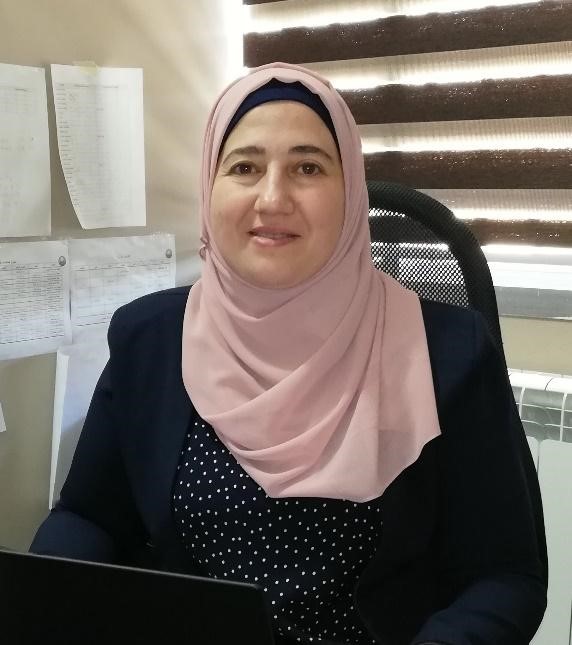
Between the 18 and 24 June 2022, the IATEFL Head Office team will be undertaking a series of challenges to raise the profile (and hopefully some funds) for IATEFL Projects, and we invite you to join us!
What are IATEFL Projects?
IATEFL Projects was a concept shaped during the Presidency of Carol Read and was launched in 2013 with the first award being made in 2014. The idea behind IATEFL Projects was to offer IATEFL Associates, particularly those who did not fall into the ‘very high’ category of the United Nations Human Development Index, the opportunity to apply for a grant to run a project designed to make an improvement to language teaching and learning in their local or regional teaching community, and to also to provide opportunities for less experienced teachers to take an active role within the delivery of that project. This remains at the heart of what IATEFL Projects aims to achieve, with priority being given to those projects that have a cascade or ‘ripple’ effect, with knowledge or skills gained by a key group of individuals, who have been the recipients of the initial funding, being taken back to the wider ELT community in their local context so a lasting legacy is created.
Very quickly, the slogan for IATEFL Projects became, ‘small grants making a big difference’ and the feedback from those Associates who have benefited from funding has overwhelmingly been that it has made fundamental differences to their communities and teaching practices. Prof. S Rajagopalan, head of the ELTAI project said, “the grant helped us to empower a large number of our members with new skills in using internet tools in ELT…It will naturally result in the enhancement of learning in their classrooms”. Kessia Kiwia, a teacher at Twiga Primary School in Dar es Salaam said about the TELTA funding, “we have created a Community of Practice in our ward where teachers meet and share what they have, all teachers are able to network, so even after the project ends, learning will continue.”
Winners so far
Five awards have been made to date with recipients being the English Language Teacher’s Association of India (ELTAI) in 2014, Cameroon English Language Teaching Association (CAMELTA) in 2015, Côte d’Ivoire Association of Teachers of English as a Foreign Language (CINELTA, formerly CI-ATEFL) in 2016, Tanzanian English Language Teachers Association (TELTA) in 2019 and Angolan English Language Teachers Association (ANELTA) in 2020. You can find a little bit more about the projects that they undertook on our website and we hope their ventures may inspire other Associates to apply in the future. At our recent conference in Belfast, the recipient of the 2022 grant was announced as Nepal English Language Teachers’ Association (NELTA) who will be undertaking an extremely important project to upskill marginalised female teachers in the Sudur Paschim (far western) province, particularly in the area of information and communications technology (ICT). We look forward to reporting back over the next few months on the progress of this project and to sharing the impact the funding has had in the region.

Thanks Thom!
IATEFL Projects is largely financed from charitable donations, and we have been extremely lucky to have had the continued support from long term member, Thom Jones, who has undertaken some daunting, and quite frankly, crazy challenges in order to highlight the work of IATEFL Projects and to raise much needed funds for this very worthy cause. His support started in 2015 when Thom, alongside round-the-world cycling record holder Julian Sayarer, cycled the 1,120 kilometers from Frankfurt in Germany to Manchester in the UK, camping in hedgerows along the way, before arriving at the IATEFL conference to much fanfare. They were supported in their venture by telc gGmbH, who then very generously matched the total donations raised. Since then, there have been equally hare-brained (but always appreciated) efforts that usually involve significant levels of discomfort which make the rest of us envy and pity him in equal measure!

Plans for this year
His efforts stirred something in us at Head Office and as the pot of money available for IATEFL Projects is currently extremely low, we thought it was time that we took it upon ourselves to undertake some of our own challenges and hopefully generate a bit of sponsorship money. We are designating the 18 to the 24 June as IATEFL Projects Week and during this time, all Head Office staff will be undertaking their own personal challenges; some of them will be physical, some of them mental, but each of them will be tailored to the individual because the IATEFL community will know, as educators, that whilst we all have things that test our abilities or require great effort and determination, one size does not fit all. During the week we will be sharing stories about our challenges; what prompted us to choose it, low and high points and photos from our adventures.
Our challenge to you!
We know that not everyone has the means to do so but if you are in a position to be able to spare a few pennies for an amazing cause, please donate whatever you can on our Facebook fundraising page. It would also be great if you could share our posts about IATEFL Projects and Projects Week so that more people find out about this great initiative.
Equally, if you feel like joining us with a sponsored challenge of your own we’d love to hear about it and make this an even greater celebration and support opportunity for IATEFL Projects. If you would like to get involved, you can find ‘I support #IATEFLProjects’ resources or please contact [email protected] for more information.





 IATEFL’s webinar programme provides participants around the world access to professional training and development opportunities without leaving the home or office. IATEFL offers a broad range of programming to help participants keep up-to-date with the latest management trends, industry best practices, hot topics, and subjects of special interest.
IATEFL’s webinar programme provides participants around the world access to professional training and development opportunities without leaving the home or office. IATEFL offers a broad range of programming to help participants keep up-to-date with the latest management trends, industry best practices, hot topics, and subjects of special interest.
